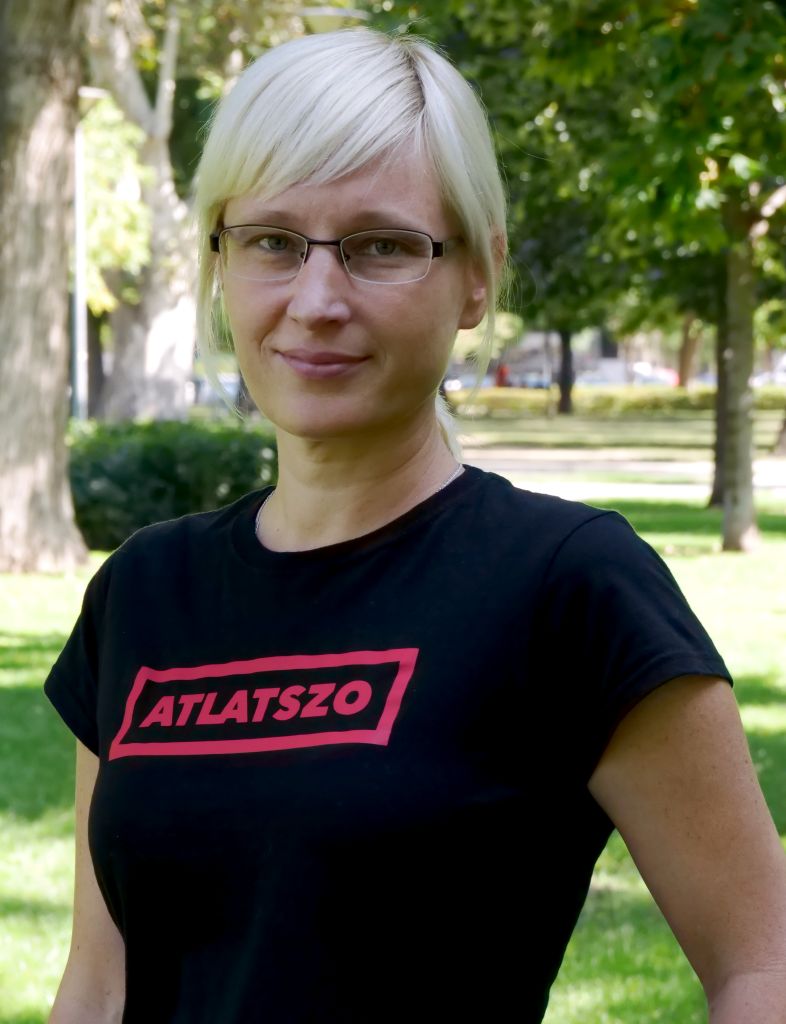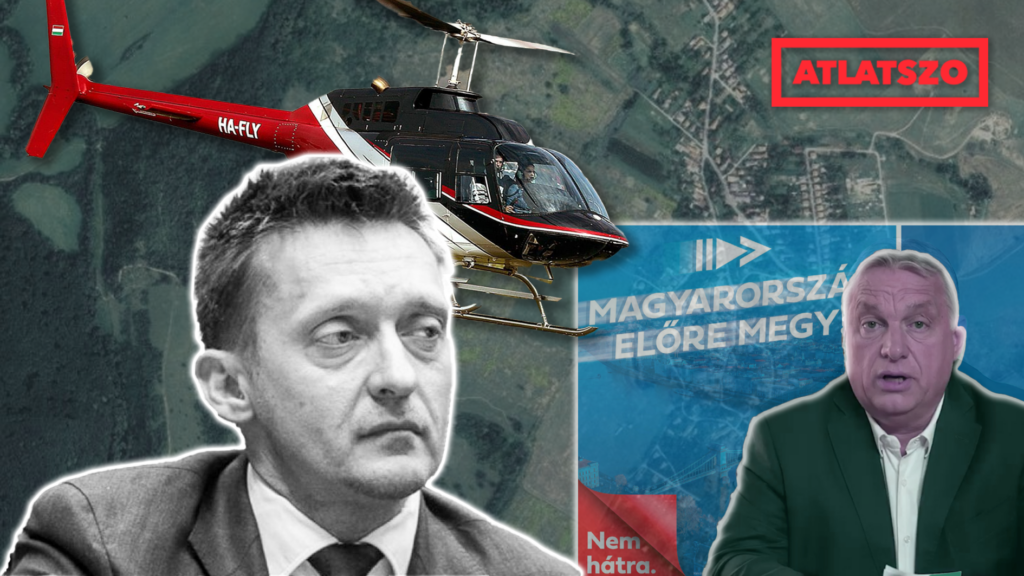The https://english.atlatszo.hu use cookies to track and profile customers such as action tags and pixel tracking on our website to assist our marketing. On our website we use technical, analytical, marketing and preference cookies. These are necessary for our site to work properly and to give us inforamation about how our site is used. See Cookies Policy
These are the cases that could have put Antal Rogán on the US sanctions list
On 7 January, news broke that the United States sanctioned Antal Rogán, a key figure of Viktor Orbán’s regime. The US press release claims Rogán has built a network of corruption in Hungary aimed at controlling strategic sectors and channeling their revenues to himself and his political allies. We have collected some cases we reported on in the last decade, that point to Rogán’s involvement in corrupt dealings.
As of Tuesday, the head of the Hungarian Prime Minister’s Office is on the US Treasury Department’s Office of Foreign Assets Control (OFAC)’s „Specially Designated Nationals and Blocked Persons List” (SDN List). This is a blacklist of individuals, companies and entities that the US government has placed under financial and economic sanctions and travel bans for various reasons. As a consequence, all assets linked to Mr Rogán that are located in the United States have been frozen and he is prohibited from doing further business in the US.

US Ambassador David Pressman held a press conference on this issue, where, according to 444.hu, he said that
“for too long, senior Hungarian government officials have used their positions of power to enrich themselves and their families, moving significant resources into private accounts. Rogán is the primary architect, implementer and beneficiary of this system of corruption.”
In the last decade Átlátszó investigated many cases involving Rogán, who has over the years become possibly the second most powerful person in Hungary after PM Viktor Orbán, controlling a wealth of bureacratic institutions, public funds, state owned companies, and even intelligence services. Each of these scandals could have been among the reasons for his sanctioning. Here are some of the most noteworthy instances of suspicious activities.
Helicopter ride to a wedding
One of Antal Rogán’s most well-known scandals involves a helicopter. Népszabadság – an independent newspaper that was subsequeantly closed down – wrote in 2016 that Rogán and his family went to a wedding by private helicopter. Rogán initially denied the expensive trip, until he was show photos as proof, when he stopped responding.
It was revealed that the helicopter rental company was contracted by the company of Rogán’s wife at the time. The company concerned, Fly-Coop Ltd., has been doing well ever since: in September we wrote that the Hungarian Defence Forces had rented aircraft from them for a net amount of HUF 104 million for parachute training.
Residency business
Rogán’s biggest scandals of recent years, however, has not been his helicopter ride, but his involvement in the government’s residency bond scheme.
Residency bonds were esentially an option whereby foreign citizens could by a permanent residency in Hungary – and by extension, visa-free travel inside a Schengen area – by investing in specific bonds. This residenty could also be the bases of family reunification. Although the program was supposed to bring revenue for the Hungarian state, the main beneficieries were private entities, including off-shore companies.
The program was opaque from the start since the bonds were distributed by various private companies, which could hide their activities as „business secrets.”
The resettlement bond scheme was initiated by Antal Rogán as chairman of the parliamentary economic committee in 2012.
A week after the bond scheme was stopped, the company’s office was robbed in autumn 2017, and 200 million forints and the bond deal documentation were taken. No suspect has been identified in the case, but it is likely that the burglary was carried out with inside help.
Transparency International Hungary and the Fiscal Accountability Institute Budapest found that the resettlement bond scheme
“has not brought any substantial benefits, and taxpayers have lost HUF 30 billion on the programme, while persons posing a serious national security risk have entered the country without serious controls”.
A lucrative invention
On 29 May 2015, Antal Rogán, together with his two partners, Balázs Csík and Csaba Lengyel, registered a patent for an electronic signature technology. The invention was briefly transferred in-house in 2016: all three sold their rights to MobilSign Kft, owned by Petra Pozsgai. Antal Rogán received an royalty of 204 million HUF from the company in 2023 and 288 million in 2022.
Rogán’s former partners have received substantial EU funding to develop a similar signature authentication system through Profitrade Ltd. OLAF investigated this €256.8 million agreement and three other contracts with the company, and the NAV also launched an investigation into suspected budget fraud causing particularly large financial losses.
Mrs. Rogán’s mysterious millions
Even after the divorce, Antal Rogán’s second wife, Cecília Rogán has no financial worries. For example, her company, Top News Hungary Kft. brings in 100s of millions of HUFs every year. The media company, founded in 2018, had a turnover of 679 million in 2020, which swelled to 1.5 billion in 2021. Since then, the company’s turnover never dipped under a yearly 1 billion HUFs.
But what exactly is behind this success is not known. The company runs the website twn.hu, which had an average of 5866 unique visitors per day in 2022. Despite the site’s obscurity, Cabinet Office of Prime Minister – ran by the ex-husband Antal Rogán – decided to run ads on the site, paid from public funds. The state lottery firm, Szerencsejáték Zrt. also advertizes on the site. This company was also controlled by the Cabinet Office of the Prime Minister.
State aid, credit for the family
Antal Rogán remarried in early 2021. Just before the wedding, his new wife and her two business partners bought 1,022 hectares of land. According to the documents, the lion’s share of the purchase price was to be covered by a 1.58 billion loan from the government-controlled Budapest Bank. Rogán later denied that the sale had taken place.
It was also revealed in documents found at the court of registration that Rogán’s father-in-law had bought a quarter of an agricultural consultancy business in Nyíregyháza for just HUF 7,500,000, which had shortly before received HUF 2,232 million in non-refundable state funding for subsidised agricultural consultancy under the EU-funded rural development programme.
The propaganda factory
However, the “crown jewel” of Antal Rogán’s empire is clearly the National Communications Office (NKOH), which was established in 2014 to “ensure that public bodies (…) under the control or supervision of the Government, as well as majority state-owned companies, carry out communication and organisational development activities that are in line with government objectives.”
To achieve this, the government has made it mandatory for all state institutions and companies to notify their communication purchases to the NKOH for approval in advance. The NKOH then decides how the communication services required by the organisations will be procured.
In practice, the centralisation meant that only one group of companies became eligable for communication contracts. As of today, the companies of Orbán loyalist Gyula Balásy monopolized state communication, making billions of HUFs each year.
GONGOs in service of the party
For years, the Cabinet Office of the Prime Minister supported the Lajos Batthyány Foundation (BLA) with billions of public money, which immediately redistributed the lion’s share of the money to Fidesz-affiliated NGOs without a public tender.
Between 2018 and 2020 alone, 57 organisations received a total of HUF 6.2 billion in grants through the BLA under 80 different titles. This means that on average, an organisation has received more than HUF 100 million.
Many of the grant recipients run media organizations themselves, influencing the public through pro-government media “experts”.
Better late than never
These are just a fraction of the many cases that, in a democratic country, would have led to a criminal investigation.
Back in 2016, Átlátszó already compiled a list of suspected corruption cases that would have prevented Antal Rogán from remaining in office in a state governed by the rule of law. Starting with the fact that Rogán had to amend his asset declaration twice in January 2014, after it turned out that his property in the Pasa Park housing estate in Rosedomb was bigger than he had previously disclosed, to the fact that during his mayoralty the municipality of District V sold dozens of properties a year at a 30 percent discount to tenants, mostly at their initiative.
Many of the transactions later turned out to have strong links to the district’s leadership, or to Rogán’s entourage, or to other connections to the government, and organized crime.
It will not be easy to get off the list
Just as it took years of “work” to get Rogán on the US sanctions list, it will not be easy to get him off.
According to the US Treasury Department’s fact sheet, a person will be removed from the list only if he or she can prove that the circumstances that led to his or her removal no longer exist. But this can be a very long process, according to HVG’s review. The decision is based on a thorough review and is assessed on an individual basis.
At the same time, the Orban government expects Donald Trump, the new US president who takes office at the end of the month, to correct the decision.
Written by Eszter Katus, translated by Zalán Zubor. Cover photo: Átlátszó montage. The Hungarian version of this story can be read here.

